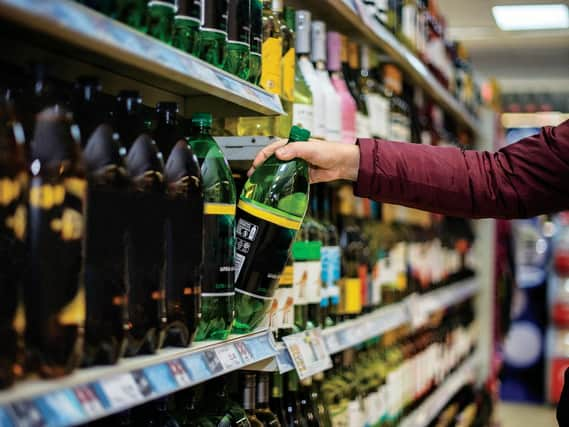Limit access to and marketing of alcohol, experts advise


Government intervention and regulation is key to reducing the harmful effects of alcohol, says a leading health campaigner.
Dr Eric Carlin, director of Scottish Health Action on Alcohol Problems (SHAAP), has warned that further policies on the price, marketing and availability of alcohol are essential to reducing the damage alcohol does in Scotland.
Although Scotland has taken a strong lead by introducing a minimum unit pricing for alcohol, SHAAP is calling for more action on the ways it is marketed and its availability.
Carlin says: “Where you have a disproportionate number of licences in the poorest neighbourhoods, that is where people are more likely to die.
“You are seven times more likely to die from alcohol-related causes if you are in the 10 per cent poorest part of the population than if you are in the top 10 per cent.
“Therefore action on marketing and availability must be part of that.”
He also wants all links between sport and alcohol removed, adding: “The government has a duty to intervene and regulate what has the potential to be an extremely dangerous product.”
According to Carlin, around three quarters of alcohol is now sold in off-sales rather than in pubs or clubs, where it is more expensive and served in controlled amounts by trained staff.
His comments come five months after Scotland’s minimum unit pricing (MUP) came into effect. SHAAP was one of the driving forces behind the legislation, having campaigned for it since 2007 as a means of reducing the number of alcohol-related hospital admissions and deaths.
It first appeared in the Scottish Government’s alcohol strategy, Changing Scotland’s Relationship with Alcohol, in 2009 but then followed a long legal battle from big business fronted by the Scotch Whisky Association, which claimed the move would restrict trade.
Carlin says: “MUP has only been in place since May, but we believe that it is already having an impact on the sales of some products, notably white ciders.
“What we also know from a whole range of studies is that the people who are drinking the most and who are harming their health most select those kinds of products.
“There are also a number of studies showing that this may be the case regardless of your income level.”
Recent figures by research company Nielsen found that sales of the drink have fallen by 8 per cent since the law came into effect.
A 3-litre bottle of cider with an alcohol content of 7.5 per cent that previously cost £3.99 is now priced at a minimum of £11.25.
Carlin argues that the priority for the longer term is going to be “whether overall alcohol consumption reduces, with the resultant impact on hospital admissions and deaths”.
MUP is an attempt to also save the Scottish economy £3.6 billion a year, which equates to £900 per adult.
SHAAP believes that minimum unit pricing is more targeted than increasing taxes because it hits both moderate and heavy drinkers.
Carlin says: “There is no absolutely pure policy that is going to impact only the products that you are particularly targeting, but this is far more targeted than if you were to apply more taxation across the board.
“However, the UK government ought also to be considering increasing taxes, as was done under the last Labour government, over which period alcohol-related harms began to decrease.”
The issues of pricing, marketing and availability will be among topics discussed at the 8th European Alcohol Policy Conference, which is organised by SHAAP and Eurocare (the European Alcohol Policy Alliance) and supported by the Scottish Government. Other topics include youth, justice, gender, health and recovery.
Speakers will include Scottish Public Health Minister Joe Fitzpatrick, Alison Douglas, chief executive of Alcohol Focus Scotland, Carina Ferreira-Borges, programme manager of alcohol and illicit drugs at the World Health Organisation, and Michele Cecchini, head of public health for the Organisation for Economic Cooperation and Development.
The 8th European Alcohol Policy Conference will take place at the Royal College of Physicians in Edinburgh on 20 and 21 November. To book a place, visit www.8eapc.eu